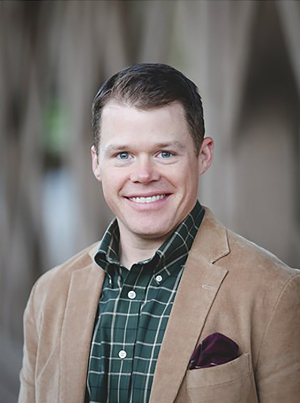Clay Smith, senior pastor of First Baptist Church in Matthews, said the Young Pastors Network, a group of North Carolina church leaders under 45 years old, could help Southern Baptists avoid a looming generational crisis by encouraging younger church leaders to connect with one another and become more involved in denominational life.
The Barna Group released data earlier this year that revealed only about 14 percent of Protestant clergy are under age 40, and the number of church leaders over 65 has tripled in the last 25 years. Barna President David Kinnaman said in the report the aging pastorate is “one of the most glaring challenges facing the church today.”
|
Clay Smith |
The average age of pastors today is 54, according to the study. Smith told the Biblical Recorder why he believes that number is troubling.
“A commonly held belief,” he said, “is that a pastor’s voice is most influential in a range of 20 years – 10 above and 10 below [his current age]. If that is the case, and the average age is 54, that means the range of our influence focuses on those aged 44 to 64.”
If people under 44 are not being significantly influenced by the average pastor, that means America’s two largest population segments are being excluded: Millennials and Generation Z, in other words, anyone born after the early 1980s, according to Smith. “That is discounting the future of our country and the future of our denomination,” he said.
Smith gave five reasons why he thinks the average age of Christian leaders is rising:
First, he said, ministry is not as “attractive” as it was in previous decades. A well-known Southern Baptist pastor in his 60s told Smith recently that ministry demands are different today than they used to be. “And by different,” Smith said, “he means harder and more expansive. … A lot of younger guys are going, ‘I don’t want to deal with that, let me just go run a parachurch ministry or do something else. I don’t want the messiness of the church.’”
Smith also said many older pastors cannot retire for financial reasons, meaning there are less ministry positions available to younger church leaders.
Third, he said people have not done a good job of purposefully relating to one another across generations.
“There are some wonderful exceptions,” Smith continued, “but I don’t sense, on the whole, there is an older generation of pastors that feels it is incumbent on them to work hard to reach out to a younger generation of pastors.
“And to be honest, a lot of younger guys have not been very good about being proactive with older pastors – being intentional about going out to lunch together and learning, asking questions.”
Smith also said “delayed adolescence” may be a contributor to the aging pastorate.
In earlier generations, a pastor may have taken an initial ministry post in his early 20s. “Now, a lot of young men and women are not ‘finding themselves’ until they are 30 or so,” he explained, “so by the time their career path gets started in the church, if they go to seminary or have some sort of formal training, it may not be until their mid to late 30s before they get started.”
Lastly, Smith said cultural differences between age groups might work against intergenerational influence and involvement. “I don’t want to overstate that, but we grew up in totally different worlds,” he said, referring to Baby Boomers, or those born in the years following World War II; Generation X, born from the mid-1960s to the early ’80s; Millennials, from the early ’80s to century’s end; and Generation Z, born around 2000 and after. “There are some significant hurdles that have to be dealt with in order to bridge the gap and pull these generations together.”
Smith worried that many church and denominational leaders do not see generational concerns as important.
“We need to see this as an urgent issue,” he said. “I don’t know to what level our convention sees this as a crisis.
“I am grateful that men like Milton Hollifield [executive director-treasurer of the Baptist State Convention of North Carolina] and others have been very supportive of us and this initiative. I know he sees this as a priority, and I’m sure there are other pastors and denominational leaders that do as well, but I don’t know if this is at the forefront of our statewide conversation about strategically recruiting, investing and developing the next generation of pastors.”
Smith is also troubled that many young church leaders are not familiar with Southern Baptist institutions and polity. “We use words like association,” he said, “and a lot of younger guys don’t know what an association is. We use words like the Cooperative Program. Do they even know what the Cooperative Program is, how it got started, how it functions? We use words like Executive Committee. What do they do?”
The Young Pastors Network is hosting an event Nov. 6 at the Koury Convention Center in Greensboro, preceding the Baptist State Convention of North Carolina’s (BSC) annual meeting. Hollifield will serve as the main speaker for the event.
Smith said the group “wants to be part of the solution” and hopes to encourage more young church leaders to attend the yearly denominational gathering.
The second-annual young pastors’ dinner has garnered more than 100 registrants, most of whom, Smith said, would not have otherwise attended the BSC annual meeting.
“I think there is a young generation that wants to be a part of what the convention is doing, wants to have a voice and wants to contribute,” he said. “They may do it differently. It may take some training, but I think people need to see this as a glimmer of hope, and not one of doom, as it relates to the looming crisis of the aging pastorate in our nation.”

